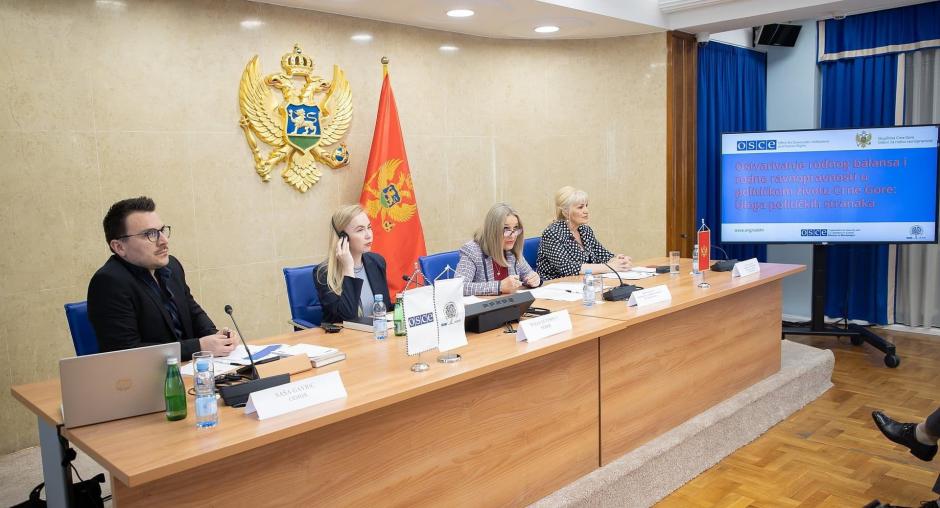Role of political parties in achieving gender equality in political life focus of the OSCE Mission to Montenegro and ODIHR’s round table

The OSCE Mission to Montenegro and the OSCE Office for Democratic Institutions and Human Rights (ODIHR), in co-operation with the Gender Equality Committee of the Parliament of Montenegro, organised a roundtable discussion on “Achieving gender equality in political life in Montenegro: The role of political parties”, on 17 May 2022 in Podgorica.
Representatives of political parties discussed ways to advance gender balance within their parties. Also considered was the idea to conduct participatory gender audits within selected political parties with a view to encourage them to develop party gender action plans.
Opening the event, Božena Jelušić, Chair of the Gender Committee, said that raising awareness of discrimination is the first condition for a fundamental change, followed by a systematic, not a sporadic response. She added that recent surveys shows that 9 out of 10 women politicians in Montenegro report gender discrimination and 7 out of 10 female respondents experienced some form of violence.
“Quotas preserve the representation of women in Parliament, but this political context can also breed a willingness to obey and have woman MPs seen as only a vote or a number, and not respected for the quality of the contribution that they can make. It is important that both men’s and women’s voices are heard within our political parties, voices to change things together, and to act, not just say that we disagree with something,” said Jelušić.
Yulia Netesova, ODIHR Chief of the Democratic Governance and Gender Unit, presented “Realizing Gender Equality in Parliament: A Guide for Parliaments in the OSCE Region,” designed to support the parliamentary actors in making their parliament to better deliver for all women and men. She acknowledged the Parliament of Montenegro as an example of continuously working towards gender equality as demonstrated in today’s event.
Saša Gavrić, ODIHR Associate Gender Officer, presented international standards, trends and good practices in the field of women’s political participation and gender equality, as well as the ODIHR’s Gender Audit Methodology, which emphasized the importance of regular gender audits of political parties. “Political parties are the gatekeeper of political life. By transforming parties we contribute in making all political institutions more responsive to the diverse needs of women in our societies,” said Gavrić.
The round table followed the 14th session of the Women’s Parliament on 16 May 2022. One of the speakers at the session was Dominique Waag, Head of the OSCE Mission to Montenegro.
